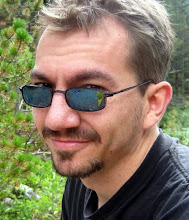John Scalzi, sci-fi author and blogger extraordinaire, wrote a post analogizing being a straight, white male to the lowest difficulty setting in life.
Dudes. Imagine life here in the US — or indeed, pretty much anywhere in the Western world — is a massive role playing game, like World of Warcraft except appallingly mundane, where most quests involve the acquisition of money, cell phones and donuts, although not always at the same time. Let’s call it The Real World. You have installed The Real World on your computer and are about to start playing, but first you go to the settings tab to bind your keys, fiddle with your defaults, and choose the difficulty setting for the game. Got it?
Okay: In the role playing game known as The Real World, “Straight White Male” is the lowest difficulty setting there is.
This means that the default behaviors for almost all the non-player characters in the game are easier on you than they would be otherwise. The default barriers for completions of quests are lower. Your leveling-up thresholds come more quickly. You automatically gain entry to some parts of the map that others have to work for. The game is easier to play, automatically, and when you need help, by default it’s easier to get.
It's a good analogy. What I find most fascinating, though, are the comments. Plenty of SWMs pop-in to cry foul and "what has being a SWM ever done for me?!?!"
Many SWMs listen to someone talk about the privilege they have and immediately cry foul which is why Scalzi avoids using the word in his analogy. "I was born poor," they say. "I've contracted cancerAIDS," they say. "Some minority got a job instead of me just because of Affirmative Action," they say. Naturally they miss the point. Scalzi is not saying that being a SWM is a guarantee of riches and an easy life. He's saying that it gives you a leg up. Of course a SWM is (usually) still going to have to put some effort into life to get ahead. It's just that it won't typically have to be as much as someone who is, say a gay, Arabic woman. More doors open more easily for SWM than they do for people who are not.
The larger point that Scalzi is making is that the people who are privileged, the SWMs, need to be aware of this. Being aware doesn't mean needing to feel guilty or to run around making apologies for what they were granted by accident of birth. It means understanding that others have not been granted the same. It means asking, "What can I do, what can we do as a society to reduce the privilege gap so that all people have the same opportunity (not the same outcome) for success.
This is not a simple problem by any means and it's not something that will be solved overnight even if everyone agreed that it was a problem that needed solving. There are still people out there who think white supremacy is a good thing. But the first step in fixing a problem is acknowledging that there is one. That's what Scalzi's post aims at doing in the clever way he's so good at.

No comments:
Post a Comment